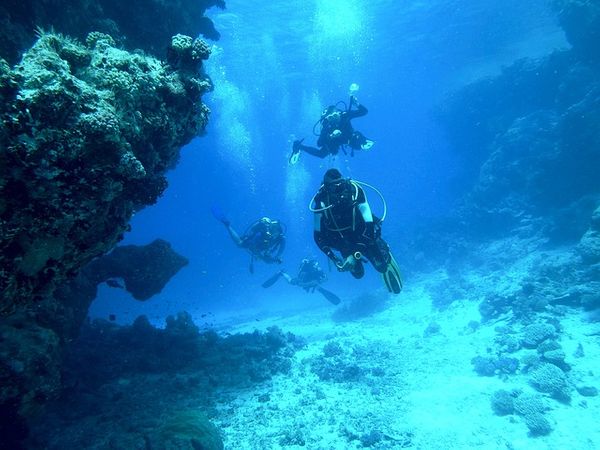There are many careers in the sciences that you never thought about. In this article, we will explore some of these careers in science field and how you can get started in them. Keep reading to learn more about the careers you never thought about in the sciences.
Water Resource Engineering
Water Resource Engineering is the application of science and engineering principles to protect and manage water resources. It covers everything from how to allocate water resources for the best use, to how to minimize the impacts of floods and droughts. The work of water resource engineers is critical to the health of our communities and our environment.
If you want to work in water resource engineering, you’ll need to study Geographic Information Systems (GIS). GIS is a computer-based mapping system that allows you to overlay different types of data, such as land use, topography, and climate, to create a comprehensive picture of a particular area. With a Masters in GIS, you can analyze how different factors impact water resources and develop strategies to better manage them.
Water resource engineering is a growing field, and there are many opportunities for careers in this field. If you’re interested in making a difference in the world, water resource engineering may be the career for you.
Oceanographer
When you think of a scientist, you may not think of someone who studies the ocean. However, oceanography is a fascinating and important scientific discipline. Oceanographers study the physical and chemical properties of the ocean, as well as its biological life. They use this information to understand the ocean’s role in the Earth’s climate and weather patterns and predict how climate change will impact the ocean.
Oceanographers also study the human impact on the ocean. They work to find ways to protect the ocean from pollution and other forms of damage. They also study the impact of ocean activities, such as fishing and shipping, on the environment.
If you’re interested in the ocean and want to pursue a career in science, oceanography may be the perfect discipline for you. It’s an exciting and challenging field that offers many opportunities for exploration and discovery.
Wildlife Biologist
Wildlife biologists are scientists who study the behavior and ecology of wild animals. They may work in a variety of settings, including parks, forests, or wildlife refuges. Some wildlife biologists conduct research in the field, while others work in laboratories or offices.
The goal of wildlife biology is to understand how animals interact with their environment and how they adapt to changing conditions. Wildlife biologists use this information to develop strategies for protecting animal populations and ecosystems.
Many wildlife biologists specialize in a particular species or group of animals. For example, they may study birds, mammals, fish, amphibians, or insects. Some focus on the effects of human activities on wild animals, while others investigate ways to use wildlife for conservation purposes.
Wildlife biology is an exciting and challenging field that offers many opportunities for career growth. Those with a passion for nature and science can find rewarding work as a wildlife biologist.
Biophysicist
A biophysicist is a scientist who specializes in the study of the physical and chemical properties of biological molecules. They use physics and chemistry to understand how biological molecules interact with each other and with their environment.
Biophysicists may work in a variety of settings, including universities, hospitals, and pharmaceutical companies.
One of the primary goals of biophysics is to develop new treatments for diseases. Biophysicists may develop new drugs or therapies, or they may study the way proteins interact with each other to create new drugs. They may also develop new methods of diagnosing diseases.
Biophysicists use various techniques to study biological molecules. These techniques include optical spectroscopy, nuclear magnetic resonance, and electron microscopy. By understanding the physical and chemical properties of biological molecules, biophysicists can help to develop new treatments for diseases.
Surprising Careers in the Sciences
Overall, careers in the sciences that you never thought about are important because they can lead to new and innovative discoveries. By exploring various career paths in the sciences, you can find the right fit for your interests and talents, and help make a difference in the world.


